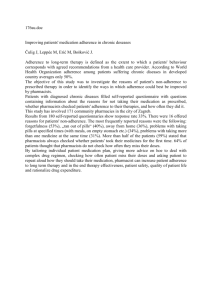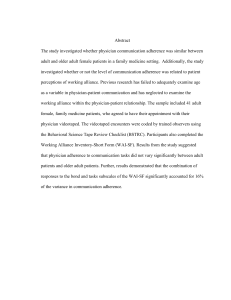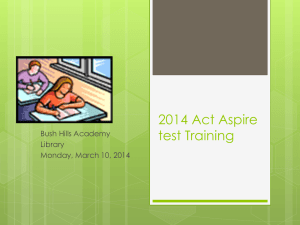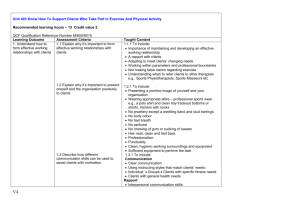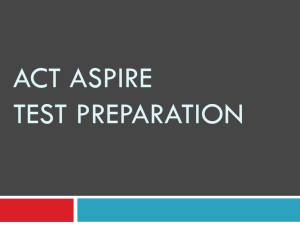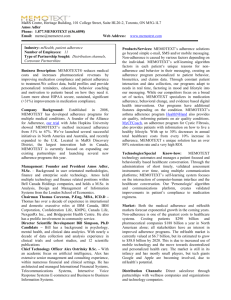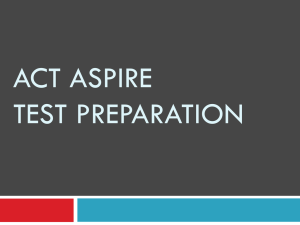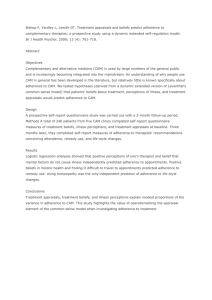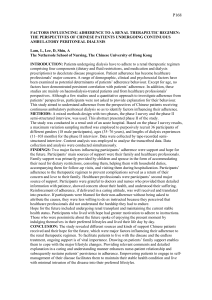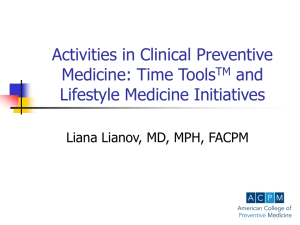PPT - MedBiquitous
advertisement
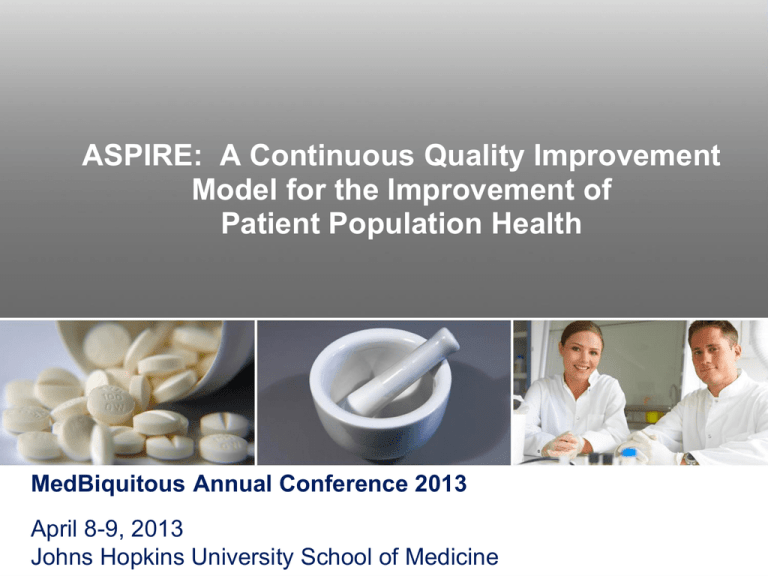
ASPIRE: A Continuous Quality Improvement Model for the Improvement of Patient Population Health MedBiquitous Annual Conference 2013 April 8-9, 2013 Johns Hopkins University School of Medicine Collaborative Scalable Model Improving Patient adherence & Medicare Star Ratings CECity’s case study: Pennsylvania Collaborative Health Plan Role Health Plan Role Data provider Continuous monthly Performance program Reporting & incentive programs Adherence measure: Sustained over time Role Role HCP learner Platform, connector and converter Role Organization CPI & incentives Role Measure provider Role Interventions ASPIRE Performance Benchmarking & Assessment 3 How do I Improve? Screening Brief Intervention (SBI) University of Pittsburgh Aimed at improving professional practice to engage patients in medication adherence • Universal Screening: Identify patients at high or moderate risk of non-adherence • Motivational Interviewing (MI) Techniques: Pharmacists trained in MI techniques to facilitate positive relationships with at-risk patients and affect behavior change • Targeted Resources: Links to online evidence based tools/education targeted at the PQA measures 4 ASPIRE ..Key Value Points and Success Demonstrated Adoption Pharmacist (Professionalism) Process Scaled Performance Improvement via Cloud/Web Platform (n=117 ) Organization (Leadership) Integrated Interventions Fostered Culture of Improvement at Point of Care & Process Redesign Scaling Performance Improvement via Cloud Platform Outcomes Financial Improved Patient Adherence as Evidenced by improvement of PQA Measures…Across Sites and Systems Scaled PI with Minimal Field Support / Related Expenses Streamlined Data Integration Impact ($) of Health Costs – Reduced 5 Questions & Discussion Thank you Annette D.Boyer,RPh CECity.com aboyer@cecity.com Jan Pringle, PhD PERU, University of Pittsburgh jlp127@pitt.edu
